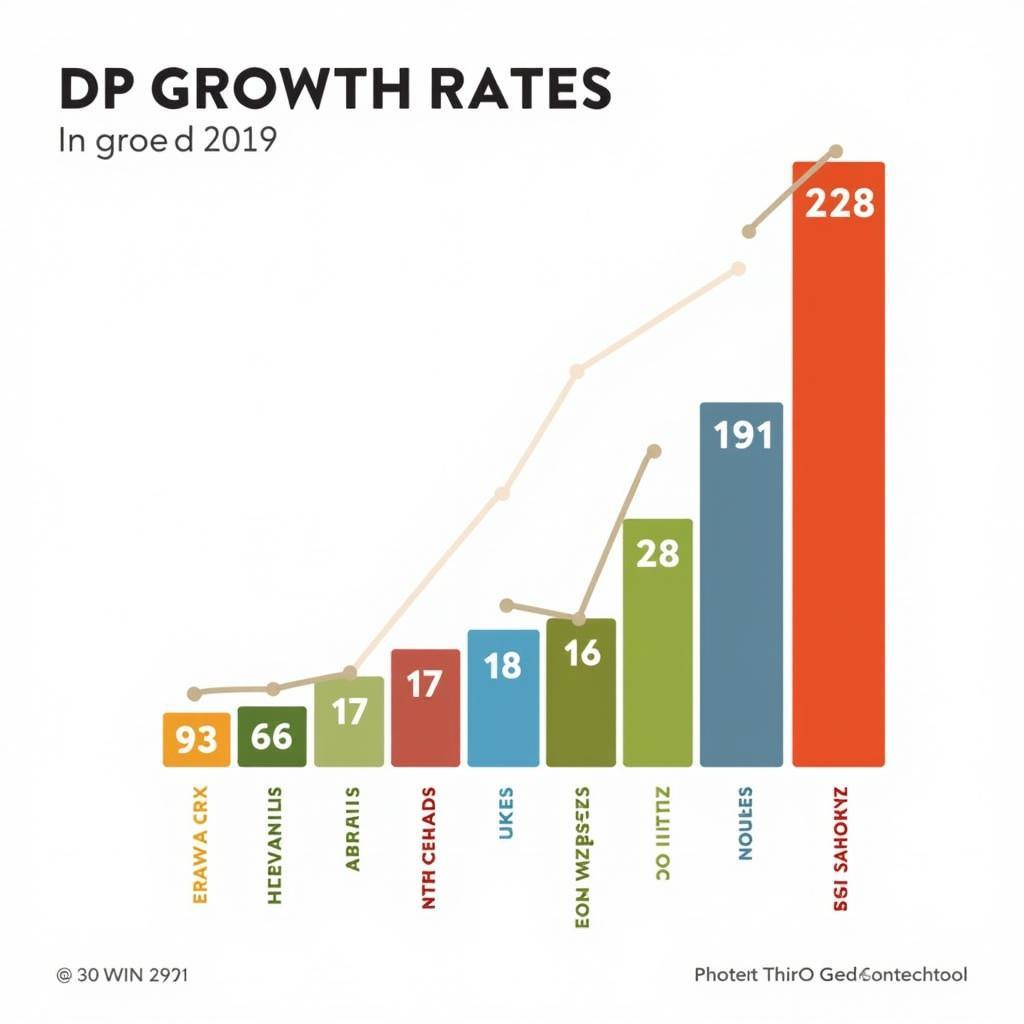African Development Report 2019: A Deep Dive
The African Development Report 2019 provided a comprehensive analysis of the continent’s economic performance and future prospects. This report, a crucial resource for policymakers, investors, and researchers, offered invaluable insights into the key drivers and challenges shaping Africa’s development trajectory.
Unpacking Africa’s Economic Performance in 2019
The report highlighted a continent on the move, with an average GDP growth rate of 3.4% in 2019, outperforming many other regions globally. This growth was fueled by a burgeoning middle class, rapid urbanization, and significant investments in infrastructure and technology.
 African Economic Growth in 2019
African Economic Growth in 2019
However, this positive narrative was nuanced by persistent regional disparities. East Africa emerged as a star performer, while growth in Southern Africa lagged behind. This uneven development trajectory underscored the need for tailored policy interventions to address specific regional challenges.
Key Drivers of Growth: Investments, Innovation, and Demographics
The report attributed Africa’s economic vitality to several key factors. Massive investments in infrastructure, particularly in transportation and energy, played a pivotal role in unlocking economic potential. Simultaneously, a burgeoning technology sector, with mobile money and digital solutions at the forefront, was transforming various sectors, from agriculture to finance.
 African Tech Innovation
African Tech Innovation
Furthermore, Africa’s favorable demographics, with a young and growing population, presented a unique opportunity for a demographic dividend. This potential, however, hinged on creating sufficient employment opportunities and equipping the youth with the necessary skills to thrive in a rapidly evolving job market.
Challenges to Sustainable Development: Debt, Inequality, and Climate Change
Despite the positive trends, the African Development Report 2019 acknowledged the considerable challenges hindering sustainable and inclusive development. Rising debt levels, particularly in the wake of large-scale infrastructure projects, posed a significant risk to macroeconomic stability. This concern was further amplified by concerns over debt transparency and sustainability. For a better understanding of the debt landscape, refer to the African countries debt list 2019.
Furthermore, persistent inequality, both within and between countries, threatened to undermine the inclusivity of economic growth. The report emphasized the need for policies that promote equitable access to opportunities, reduce income disparities, and empower marginalized communities.
Adding another layer of complexity, climate change emerged as a significant threat to Africa’s development aspirations. The continent’s vulnerability to extreme weather events, droughts, and rising sea levels underscored the urgency of climate action and the need for investments in climate-resilient infrastructure.
Looking Ahead: Policy Recommendations and the Path Forward
The African Development Report 2019 concluded with a series of policy recommendations aimed at navigating these complex challenges and securing a more prosperous future for Africa. These recommendations included:
- Fiscal Prudence and Debt Management: Implementing sound fiscal policies, enhancing debt transparency, and exploring innovative financing mechanisms to mitigate debt risks.
- Promoting Inclusive Growth: Investing in education, healthcare, and social safety nets to reduce inequality and ensure that the benefits of growth are shared by all.
- Harnessing the Demographic Dividend: Creating employment opportunities, particularly in labor-intensive sectors, and equipping the youth with the skills needed to succeed in a changing job market.
- Investing in Climate Resilience: Mainstreaming climate change into national development plans, investing in climate-smart infrastructure, and promoting sustainable land and water management practices.
- Deepening Regional Integration: Fostering intra-African trade, removing trade barriers, and promoting free movement of people and goods to unlock the full potential of the African Continental Free Trade Area (AfCFTA).
 African Leaders Summit
African Leaders Summit
The African Development Bank’s report on the continent’s economic outlook can be found here: African Development Bank Report. For a broader perspective on the economic forecasts, you can refer to the African economic outlook 2019.
Conclusion: Navigating Complexity, Seizing Opportunity
The African Development Report 2019 painted a nuanced picture of a continent grappling with complex challenges while simultaneously brimming with immense potential. By addressing these challenges head-on and implementing sound policies, Africa can unlock a brighter and more prosperous future for all its citizens. The report served as a stark reminder that sustainable development requires a multi-faceted approach, one that prioritizes inclusive growth, empowers its youth, and builds resilience against future shocks.



